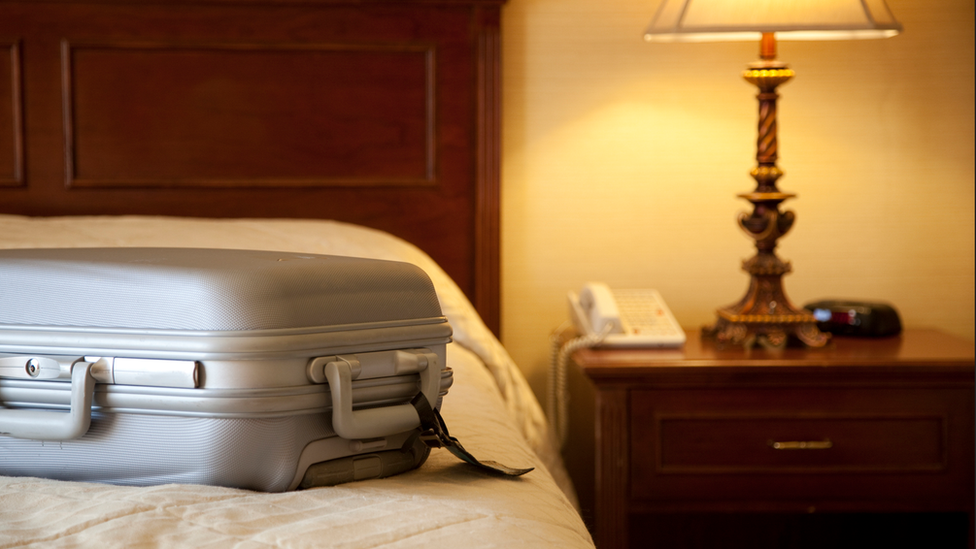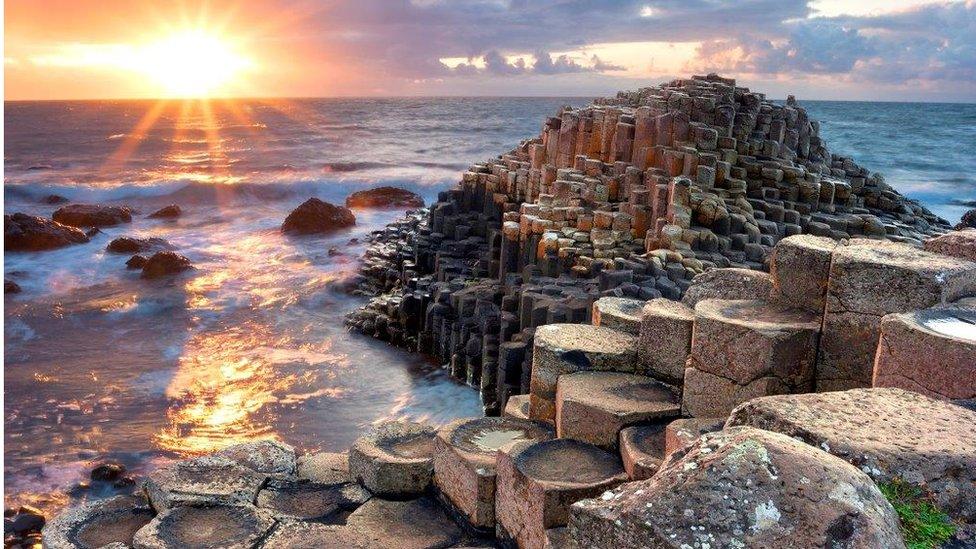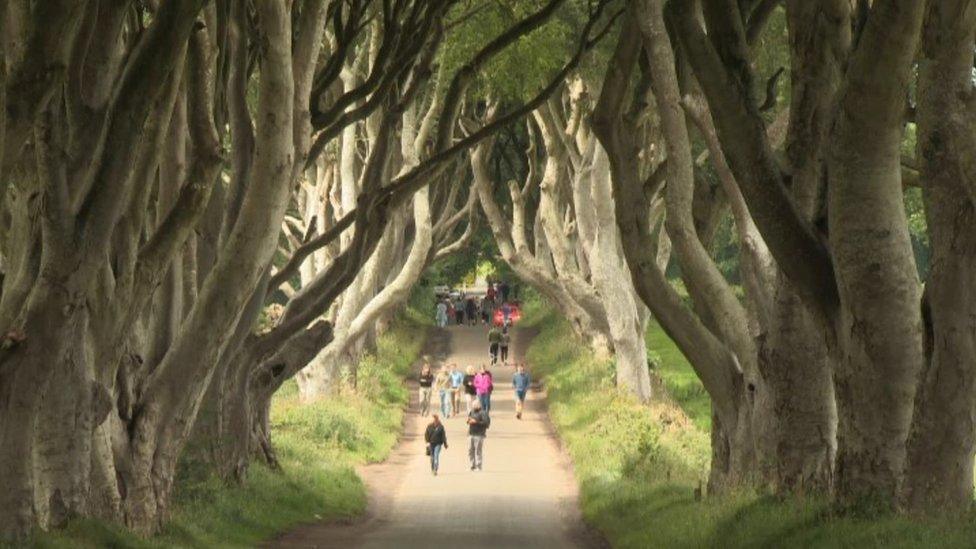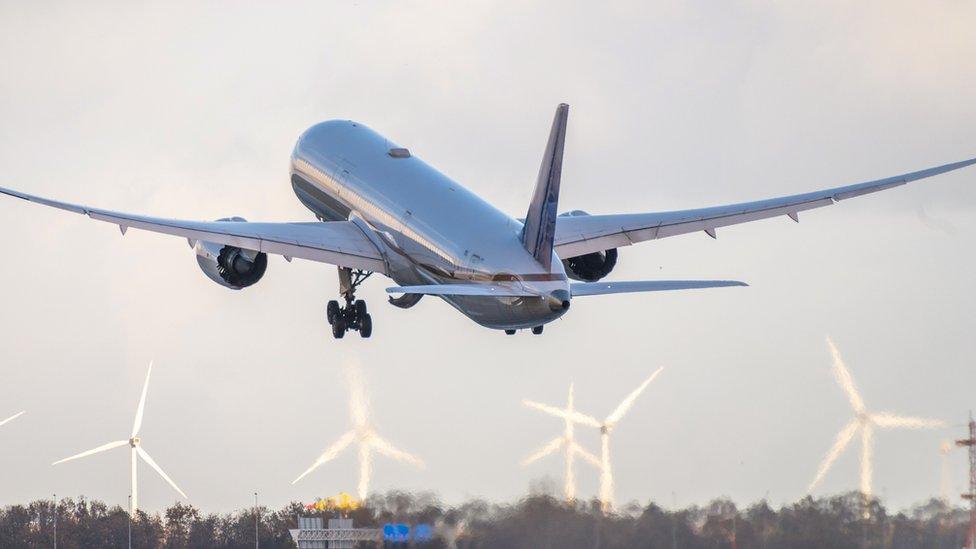Northern Ireland tourism: New strategy aims to grow industry by 75%
- Published
- comments

The Department for the Economy anticipate visitor numbers will reach 90% of 2019 levels this year
A new tourism strategy for Northern Ireland aims to grow the value of the industry by up to 75% over the next ten years.
The baseline year is 2019, the last full year for which reliable tourism data is available.
In 2019, annual tourism spending in Northern Ireland reached an estimated £1bn for the first time.
The industry then suffered a huge downturn due to the pandemic before undergoing a partial recovery.
The Department for the Economy, which has drawn up the draft strategy, external, said it was anticipated that visitor numbers will reach 90% of 2019 levels this year.
A major plank of the new strategy is to convince visitors to stay longer and spend more.
It reported: "Our emphasis will be less on encouraging more visitors, and more on encouraging our visitors to stay longer, consume more tourism product thus spending more."
The strategy proposed that resources be focused on four key markets: the domestic Northern Ireland market, Great Britain, the Republic of Ireland and North America.
The department said those markets have been chosen due to their "scale, value, potential for growth and likely propensity to consider Northern Ireland as a holiday destination".

The strategy acknowledged some attractions are "reaching capacity in peak season and creating potential frustrated demand"
The strategy also aimed to make Northern Ireland an all year-round destination and spread tourist spending outside the traditional tourist hotspots.
It acknowledged that some key attractions such as the Causeway Coastal Route are "reaching capacity in peak season and creating potential frustrated demand".
It said investments planned through the city and growth deals offers "capacity building opportunities" in other locations that could encourage a wider geographical dispersion of visitors.
- Published26 October 2020

- Published18 February 2023

- Published6 June 2023
